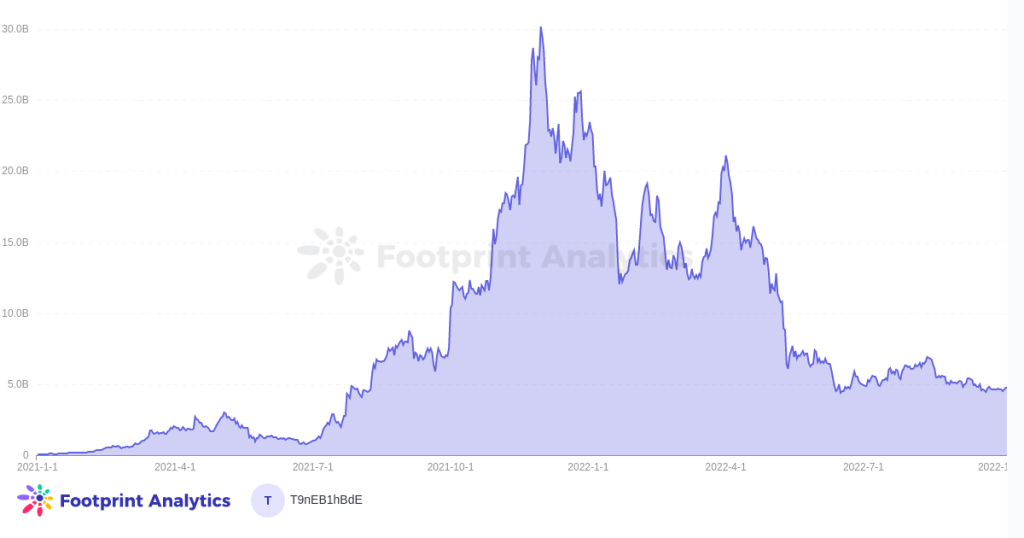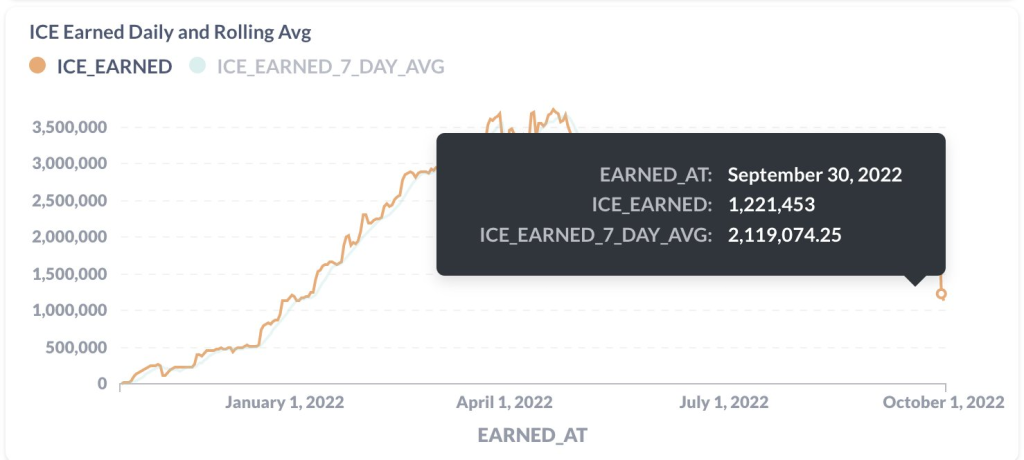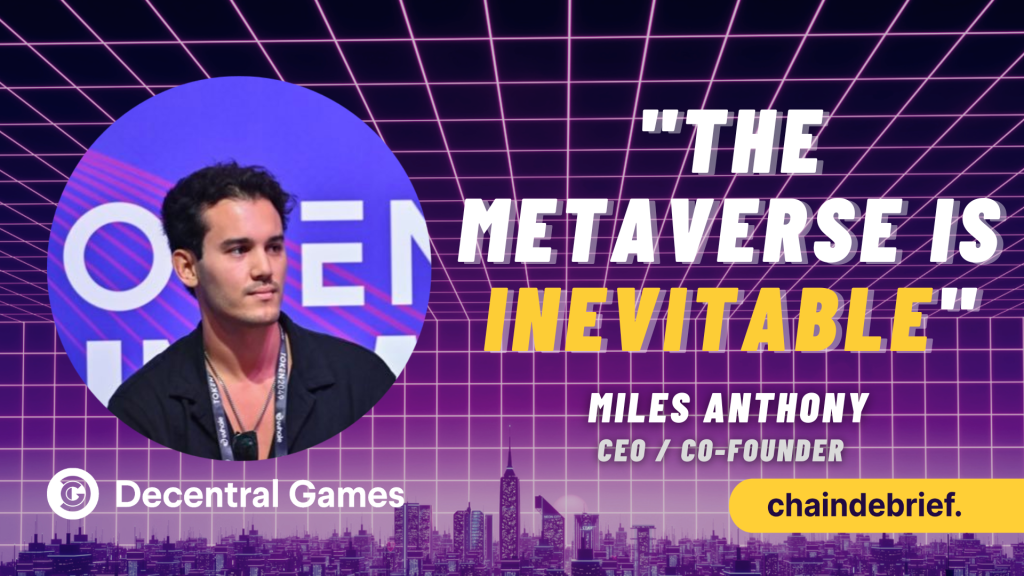Even with GameFi still in its infancy, there is more that needs to be done. Before we see significant improvements in the space, there needs to change.

After the massive run-up in Gamefi activity, whatever is left remains with leftovers of the bear market.
Although some may believe the Metaverse is a place for wishful thinking, few others continue building a place for the future.
By “pushing the boundaries of new technologies,” coupled with exploring the novels of crypto-economic models, Miles, the CEO of Decentral Games, is primed to continuously push the boundaries of GameFi as we know of today.
The Play to Earn business may be rewarding yet brutal at the same time. Tokenomics, for example, is one area in ensuring long-term sustainability and success, else, the game will likely crumble in itself.
Find out more about their token allocations here.
While there are many more aspects to be considered, the upside of what brings to web3 may just be worthwhile.
Bringing the next billion?
Decentral Games’ most popular project is a free metaverse poker game where players earn tokens by playing online. Or rather, in the metaverse.
And play to earn, may just be the toll to bring in the next billion users. But even as a “great tool for user acquisition,” there still needs to be a focus on any ecosystem to have ” balanced economics that welcomes user spending to offset the rewards given.”
With the two game modes within ICE Poker, challenge and tournament mode comprises both inflationary and deflationary tokenomics models respectively.
To strive for a balance in any in-game economy is crucial. Especially with GameFi bubbles which popped this year, not only do builders have to create a game which will be enjoyable to play, but plenty of focus has to be dedicated to making tokenomics right.
Super Shine Friday brought us our biggest $ICE burn day yet – with 479,500 $ICE burned by players adding Shine to their wearables to play Tournament Mode. pic.twitter.com/o80v4fKy5Z
— Miles (@0xMiles) October 1, 2022
“Sustainability is achieved when you have balance within the in-game economy via token sinks that offset the play and earn emissions.”
There also has to be real-world revenue generation to supplement any business. And it’s no different in the metaverse.
By bolstering the ecosystem’s token sinks by launching the new tournament gameplay, which required the burning of tokens, the team continually strive to ensure the long-term sustainability of the game.
Today, we launched ICE Poker Flex Tournament Mode.
— Miles (@0xMiles) September 12, 2022
Couldn't be more proud of the DG team and community for getting this live as we kick off the next era of growth for @DecentralGames.
“Decentral Games’ revenue is derived from Shine purchases, wearable mints, wearable upgrades, wearable activations, our DAO’s Polygon Validator node rewards, DEX trading fees, and secondary sale royalties.”
Furthermore, the launch of their new rewards structure, The ICE Merge, dropped their daily emissions, even more, bolstering toward a balance tokenomic structure.

The $ICE emissions from the tournament cash outs amounted to 63,000 $ICE, “This yielded a total of 1,284,453 $ICE earned.”

The final calculation for this event alone in the burn-to-earn ratio is 1.06.
While they continue to strive to establish more data points to truly cement their ongoing burn-to-earn ratio, one thing is for sure, they are taking positive steps towards the right direction.
Poker in the metaverse with a taste of DAOs
After developing four other games, they are now zoning in on poker as it garnered the best product-market fit.
While the entertainment aspect of poker is widely regarded, doing it in the metaverse on top of introducing the capabilities of a DAO brings something new to the table.
Merging the two verticals in web3, naturally creates a level of standard for all other blockchain games to follow.
Especially when “no one has truly been able to achieve” new sustainable economic models for the games in the metaverse, it comes as additional fuel for Miles to be the first to “kick off this next phase of blockchain gaming growth.”
Incorporating DAOs into the entire game ecosystem brings in the aspect of governance. Staking the $DG token will allow users to make proposals and vote on the future of the DAO, earn auto-compounding APR, and get access to ICE Wearable mints.

This will enable those who hold governance tokens to shape the future. “While the Decentral Games team handles game development, the most essential votes of the Decentral Games DAO have been centred around treasury allocation and economic policy of the ICE Poker ecosystem.”
The future ahead with regulation
Although on the surface poker may seem to be difficult with regulation, they ultimately designed the game to reflect a free-to-play, play-and-own architecture.
“We’ve received legal options from various jurisdictions (from within and outside the US) on how both DG and ICE tokens are not classified as securities under US law.”
The Decentral Games team had to go through various legal opinions on both game modes (Challenge and Tournament Mode) and legal advice which are sourced throughout the development process to ensure the game resembles an arcade and does not contribute any form of gambling or wagering.
Beyond regulation, Miles also talked about various approaches the team is undertaking for the future of Decentral Games.
“We are extremely excited to ship improved onboarding, add fuel to the fire with a highly effective user acquisition strategy, and ultimately prove that it’s possible for a 2021 play and earn project to revive and balance its in-game economy.”
Although the current components of any play-to-earn platform may be hard to execute, small wins are an inch towards a greater outcome. While the gamefi industry is in dire need of a ‘success story,’ Decentral Games is primed to emerge, not only among poker enthusiasts but among the non-crypto natives.
Also Read: Here is Why Bitcoin is More Energy Efficient Than You Think
[Editor’s Note: This article does not represent financial advice. Please do your own research before investing.]
Featured Image Credit: Chain Debrief



































